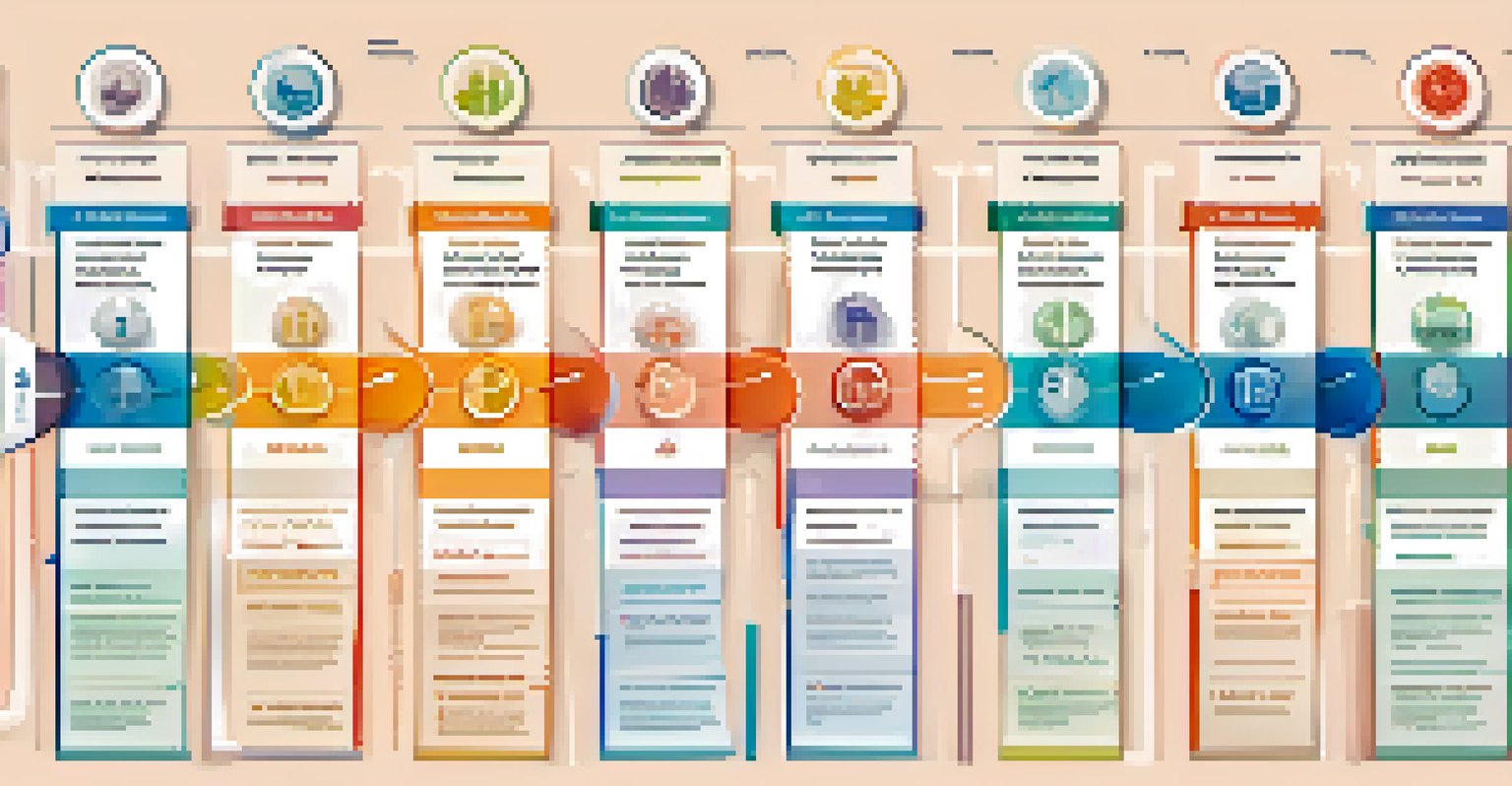Vaccines for Adults: What You Need to Know and When

The Importance of Vaccination for Adults
Vaccination isn't just for kids; adults also need to stay up-to-date. As we age, our immune systems can weaken, making us more susceptible to diseases. Vaccines help bolster our defenses against infections that could be dangerous or even life-threatening. Regular vaccinations can protect not only ourselves but also those around us.
Vaccination is the key to the future of health.
In the past, many adults overlooked vaccinations, thinking they were only for children. However, diseases like influenza, shingles, and pneumonia can affect adults significantly. By getting vaccinated, you’re taking an important step towards maintaining your health and well-being. It's a simple yet effective way to safeguard your future.
Moreover, some vaccines have a community impact, reducing the spread of diseases. When a larger portion of the population is vaccinated, it creates herd immunity, protecting those who can't be vaccinated, such as infants or immunocompromised individuals. This collective effort is vital for public health.
Recommended Vaccines for Adults
Several vaccines are recommended for adults, including the flu vaccine, Tdap, and MMR. The flu vaccine is advised annually, as the virus changes each year. Tdap protects against tetanus, diphtheria, and pertussis, and should be received every ten years. Understanding which vaccines are relevant to your age and health status is crucial.

Additionally, the shingles vaccine is recommended for adults over 50. Shingles can be a painful condition that arises from the dormant chickenpox virus in our bodies. Receiving this vaccine can significantly reduce the chances of developing shingles and its complications. It’s a proactive way to maintain your health as you age.
Vaccination is Crucial for Adults
Staying up-to-date with vaccinations is vital for adults to strengthen their immune systems and protect against serious diseases.
Lastly, consider vaccines like the pneumococcal vaccine, which protects against pneumonia and is particularly important for older adults or those with certain health conditions. Each vaccine plays a unique role in defending against specific diseases, so staying informed is key.
When to Get Vaccinated: Age Guidelines
Timing is everything when it comes to vaccinations. Generally, the CDC provides guidelines on when adults should receive specific vaccines. For instance, the flu shot is recommended every year before the flu season, while the shingles vaccine is typically advised starting at age 50. Following these timelines helps ensure maximum protection.
An ounce of prevention is worth a pound of cure.
Another important consideration is your medical history and lifestyle. If you travel frequently, you may need additional vaccines, such as those for hepatitis A and B. It's essential to consult with your healthcare provider about your specific needs based on lifestyle and health status.
As you approach milestones like turning 60 or 65, it’s a good time to reassess your vaccination status. Certain vaccines become more critical as you age, and having regular discussions with your doctor can help keep your immunization schedule on track.
Understanding Vaccine Safety and Side Effects
One common concern among adults is the safety of vaccines. It's important to note that vaccines undergo rigorous testing to ensure they are safe and effective. Serious side effects are rare, and most people experience only mild symptoms, such as soreness at the injection site or a low-grade fever.
Understanding these potential side effects can help alleviate concerns. For example, feeling fatigued after a vaccine is a normal response as your body builds immunity. It's essential to remember that the benefits of vaccination far outweigh the risks of potential side effects.
Recommended Vaccines by Age
Certain vaccines, like the flu and shingles vaccines, are recommended at specific ages to ensure effective protection as health risks increase.
If you have specific health concerns or allergies, discuss them with your healthcare provider before getting vaccinated. They can provide tailored advice and help you make informed decisions about which vaccines are safest for you.
Vaccines for Specific Health Conditions
Adults with certain health conditions may require additional vaccines. For instance, individuals with diabetes or heart disease might need the pneumococcal vaccine to protect against pneumonia. Each health condition can impact your immune system differently, making it crucial to stay informed.
If you have a weakened immune system or are undergoing treatment, such as chemotherapy, your vaccination needs may differ. It's important to work closely with your healthcare team to determine the best vaccination strategy for your health situation.
Additionally, pregnant women have specific vaccine recommendations to protect both themselves and their babies. Consulting a healthcare provider can ensure you receive the necessary immunizations tailored to your health status and life stage.
How to Keep Track of Your Vaccination Records
Keeping track of your vaccination records is essential for maintaining up-to-date immunizations. You can request a copy from your healthcare provider, or check with your local health department. Many people find it helpful to maintain a personal health record that includes vaccination dates and types.
In today’s digital age, there are also apps and online platforms that can help you manage your vaccination history. These tools often send reminders for upcoming vaccines, which can be a game-changer for busy adults trying to keep track of their health.
Consult Your Healthcare Provider
Regular discussions with healthcare providers about vaccines help tailor immunization plans based on individual health needs and circumstances.
Remember, having an accurate vaccination record can be particularly important for travel or employment requirements. Being proactive about your vaccinations not only benefits your health but also ensures you’re prepared for any situation that may arise.
Consulting Your Healthcare Provider About Vaccines
Regular consultations with your healthcare provider about vaccinations are vital for your health. They can offer personalized advice based on your medical history, lifestyle, and age. Don't hesitate to ask questions or express any concerns you might have regarding vaccines.
Your provider can also help you understand the implications of skipping vaccines. For instance, not getting the flu shot can increase your risk of severe illness during flu season. Understanding the risks associated with not vaccinating can empower you to make informed choices.

Moreover, if you’re unsure which vaccines you’ve already received, your healthcare provider can help you track down your vaccination history. This collaborative approach can help ensure you're fully protected against preventable diseases.